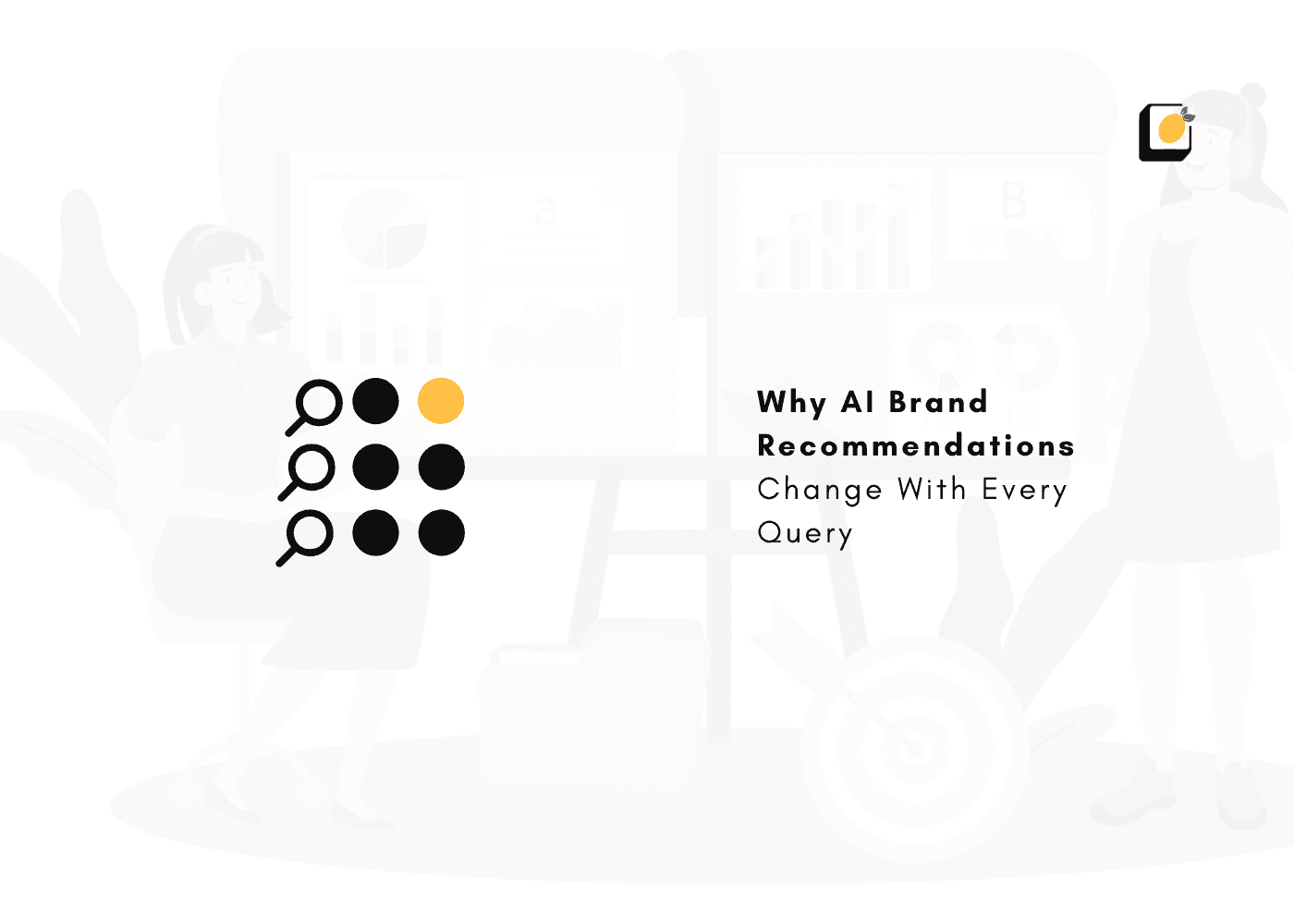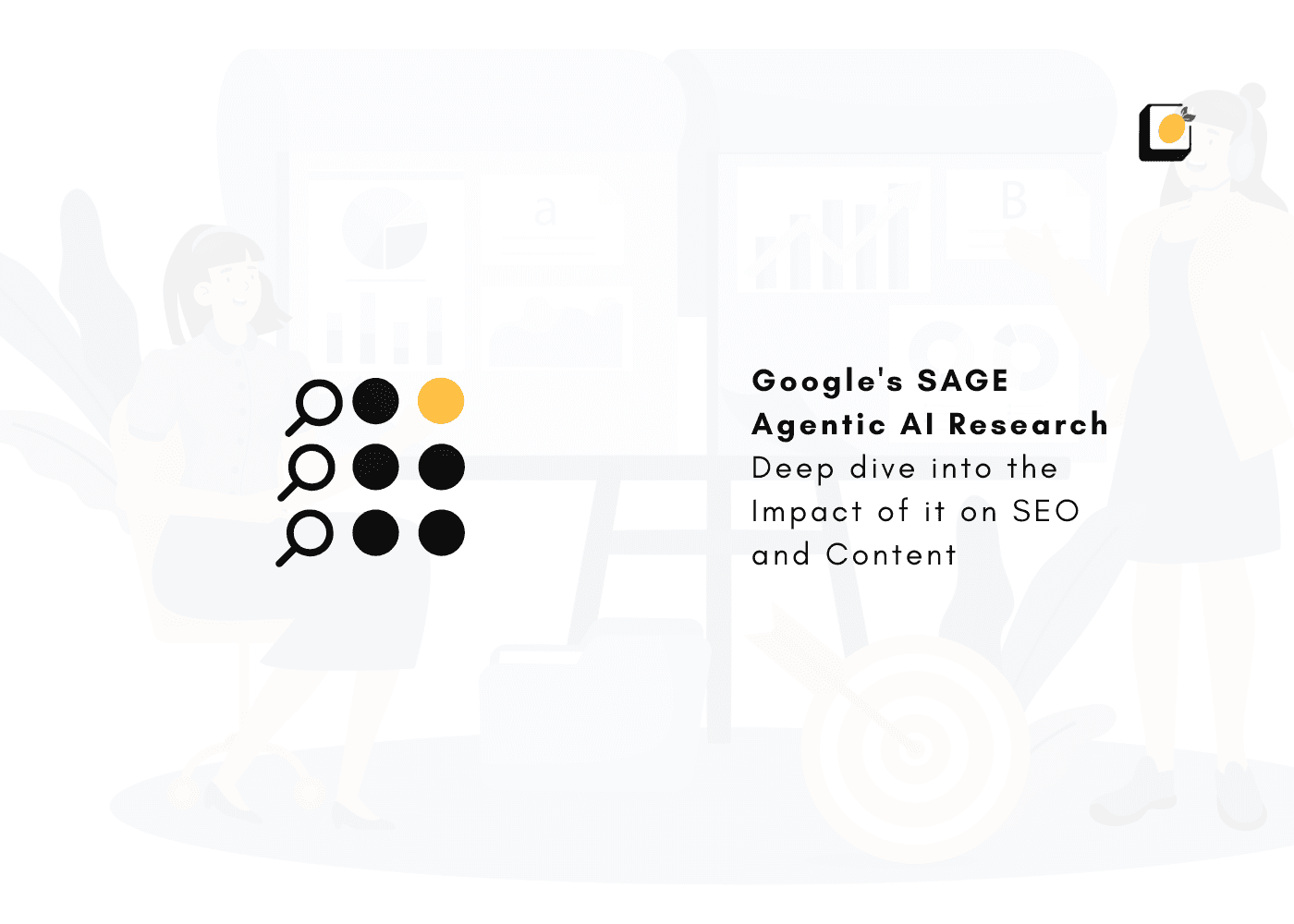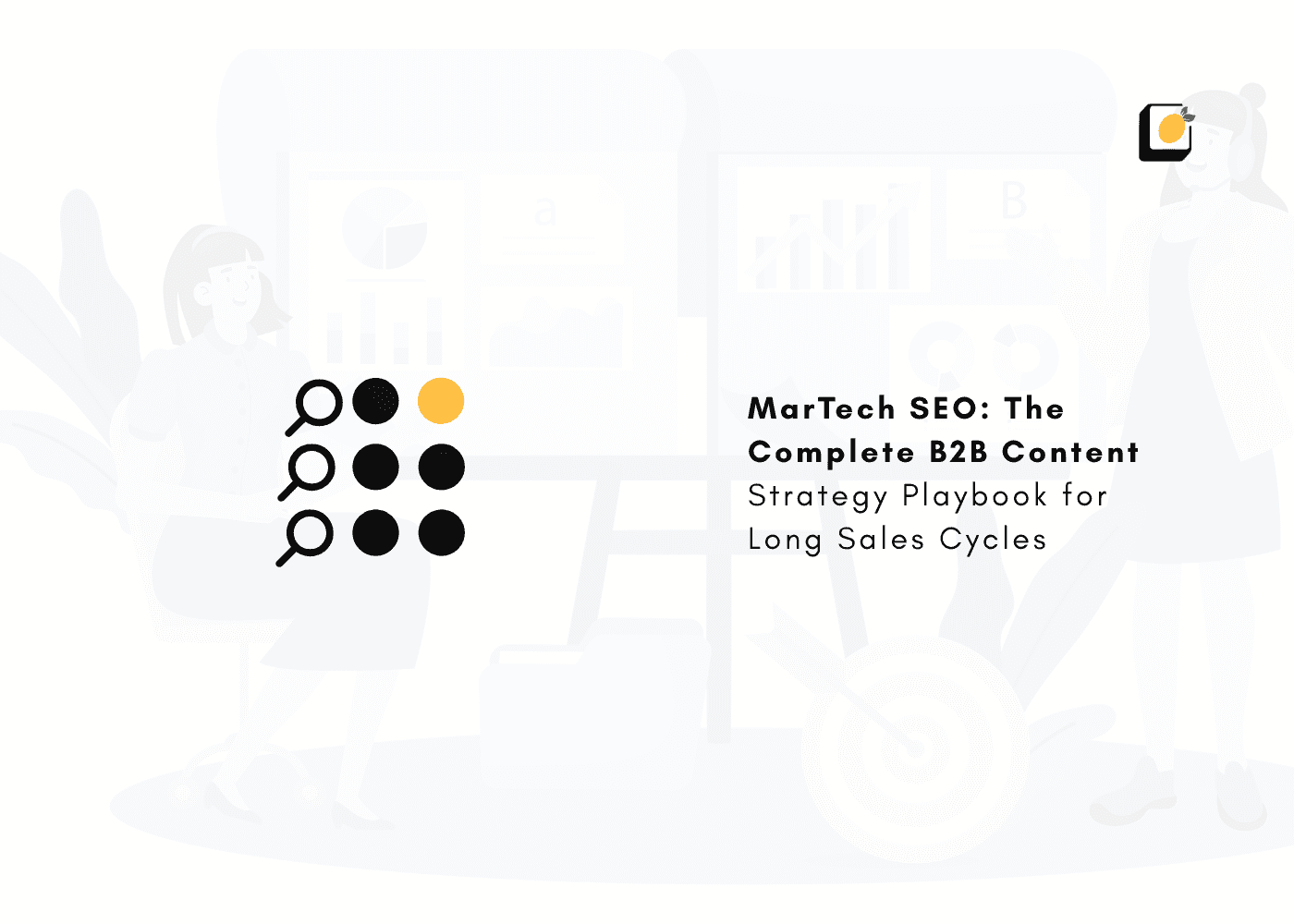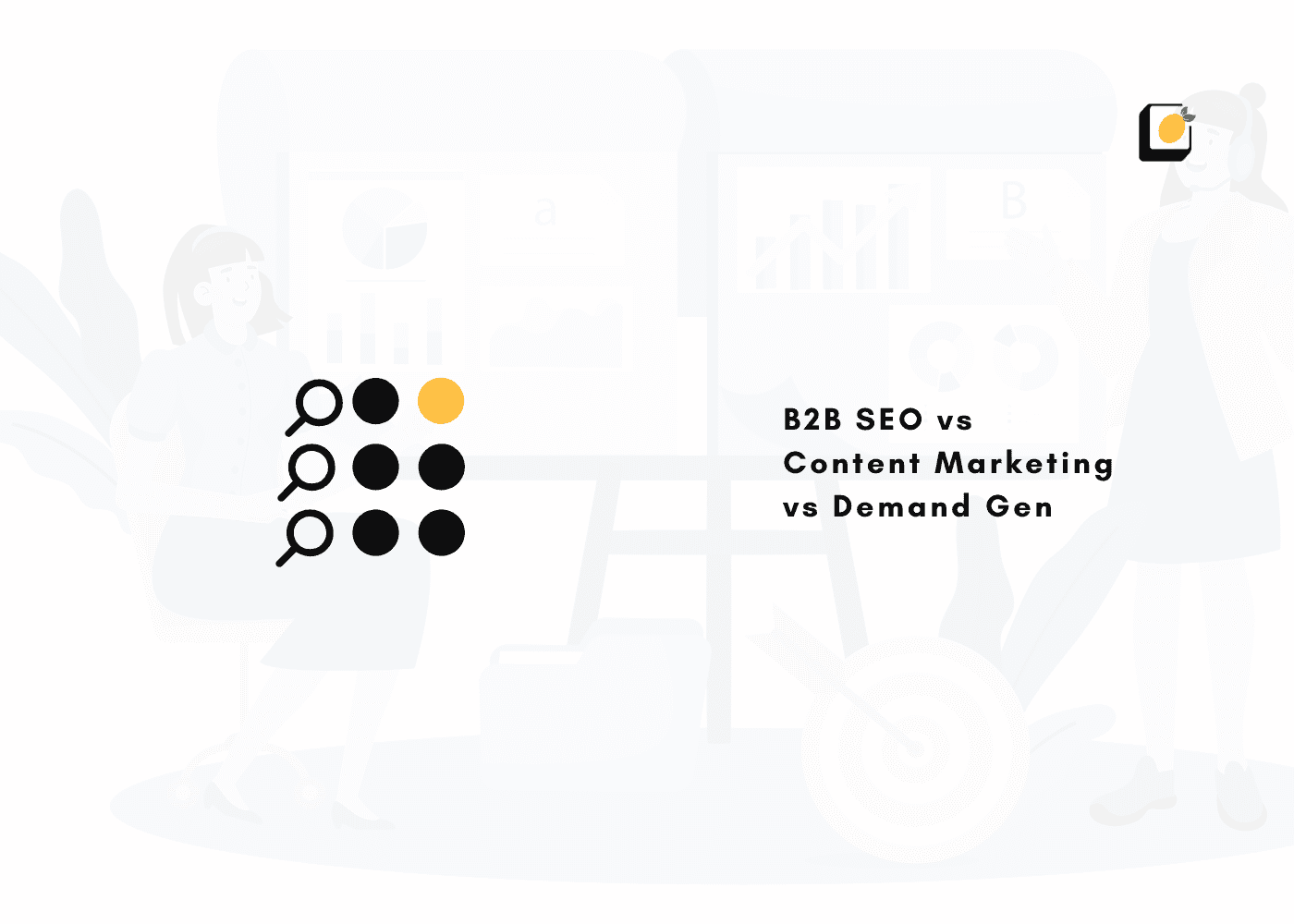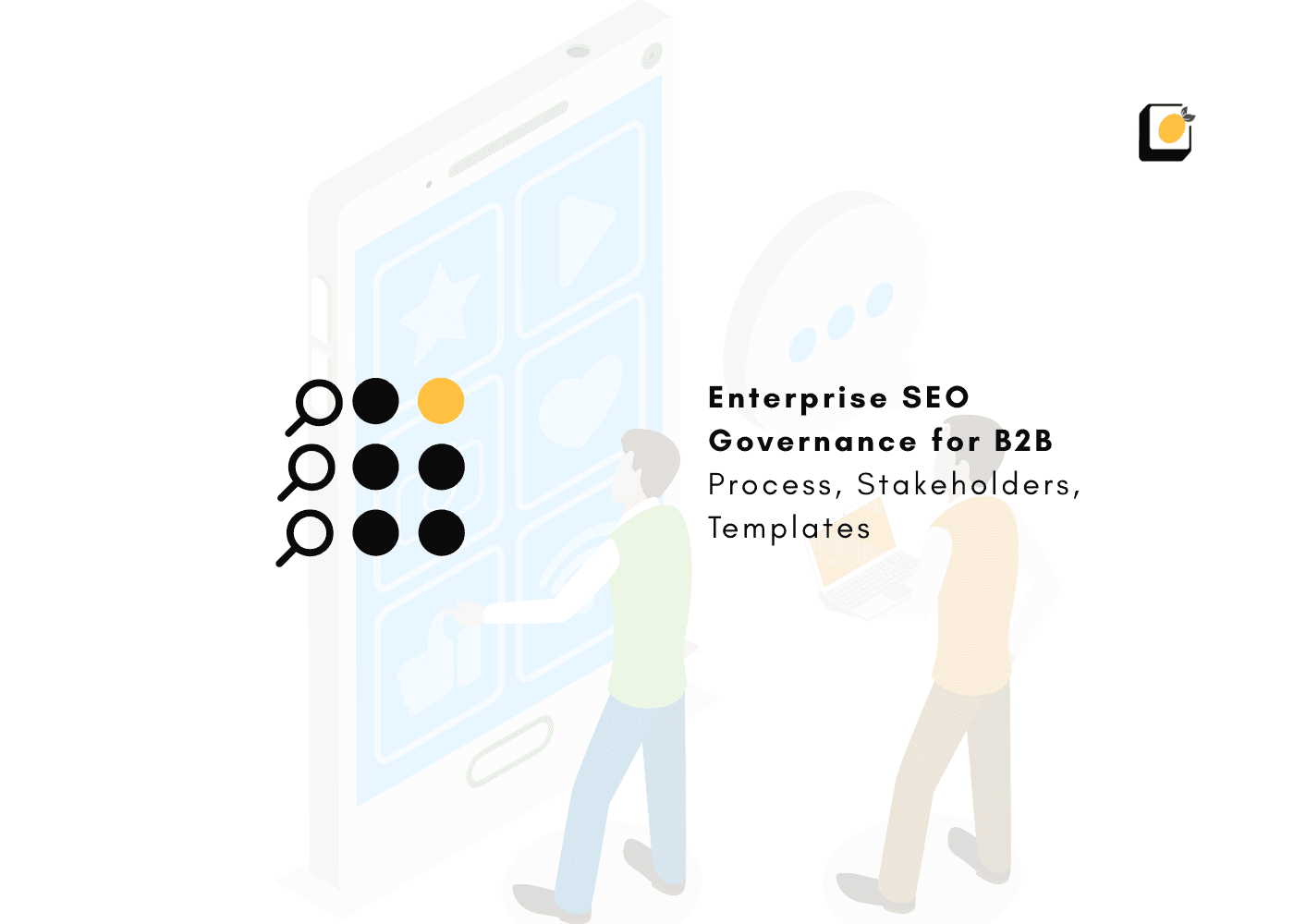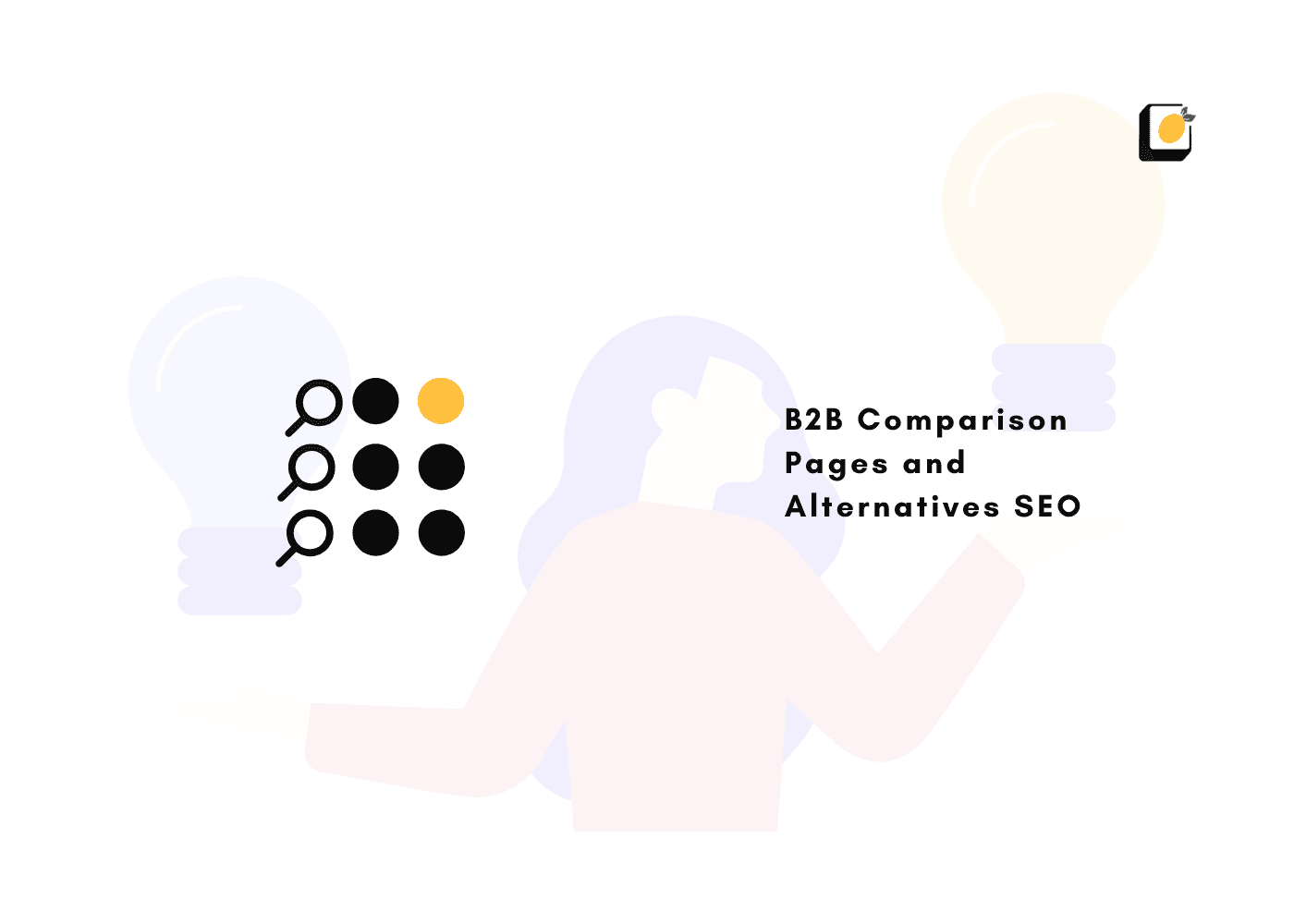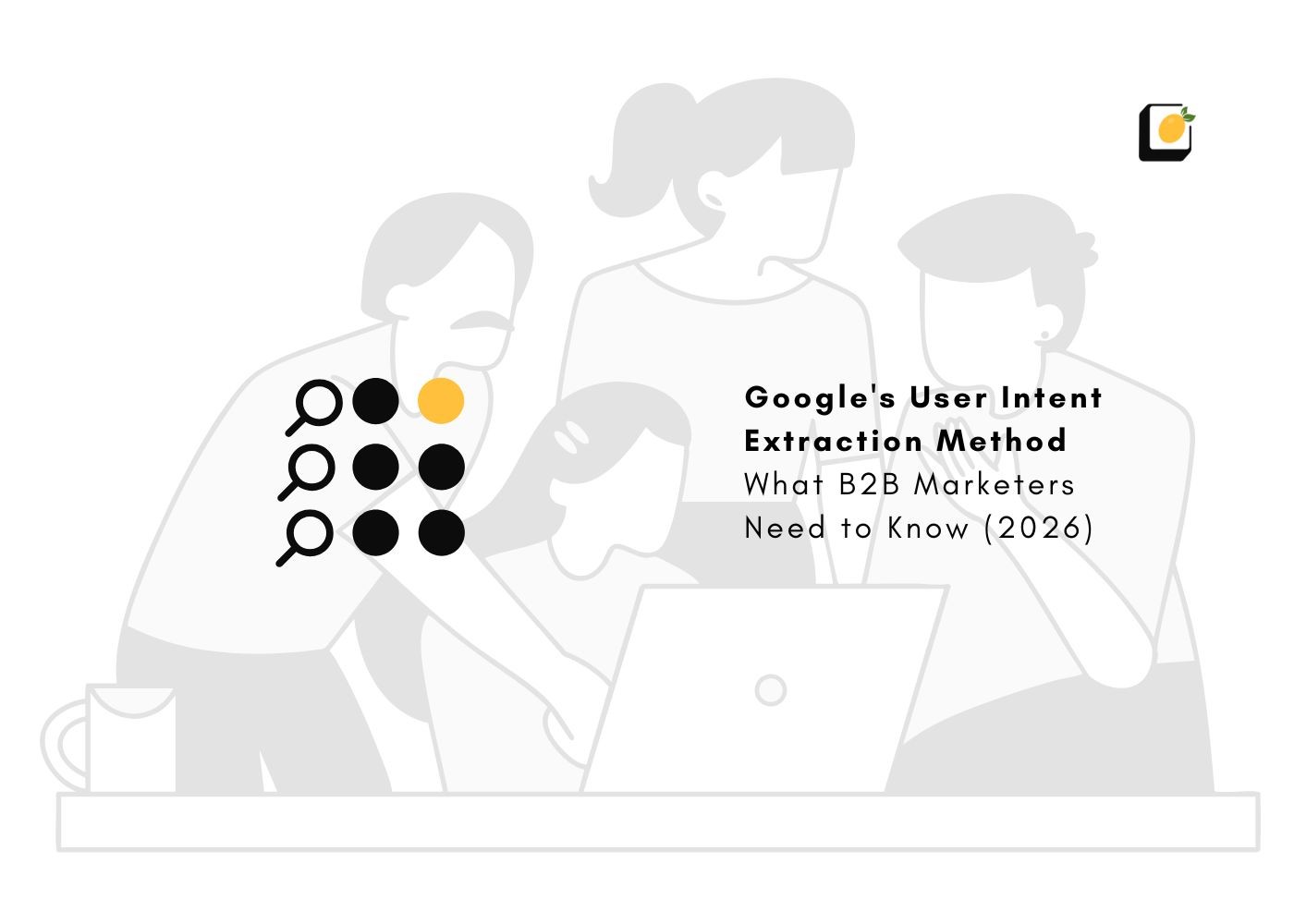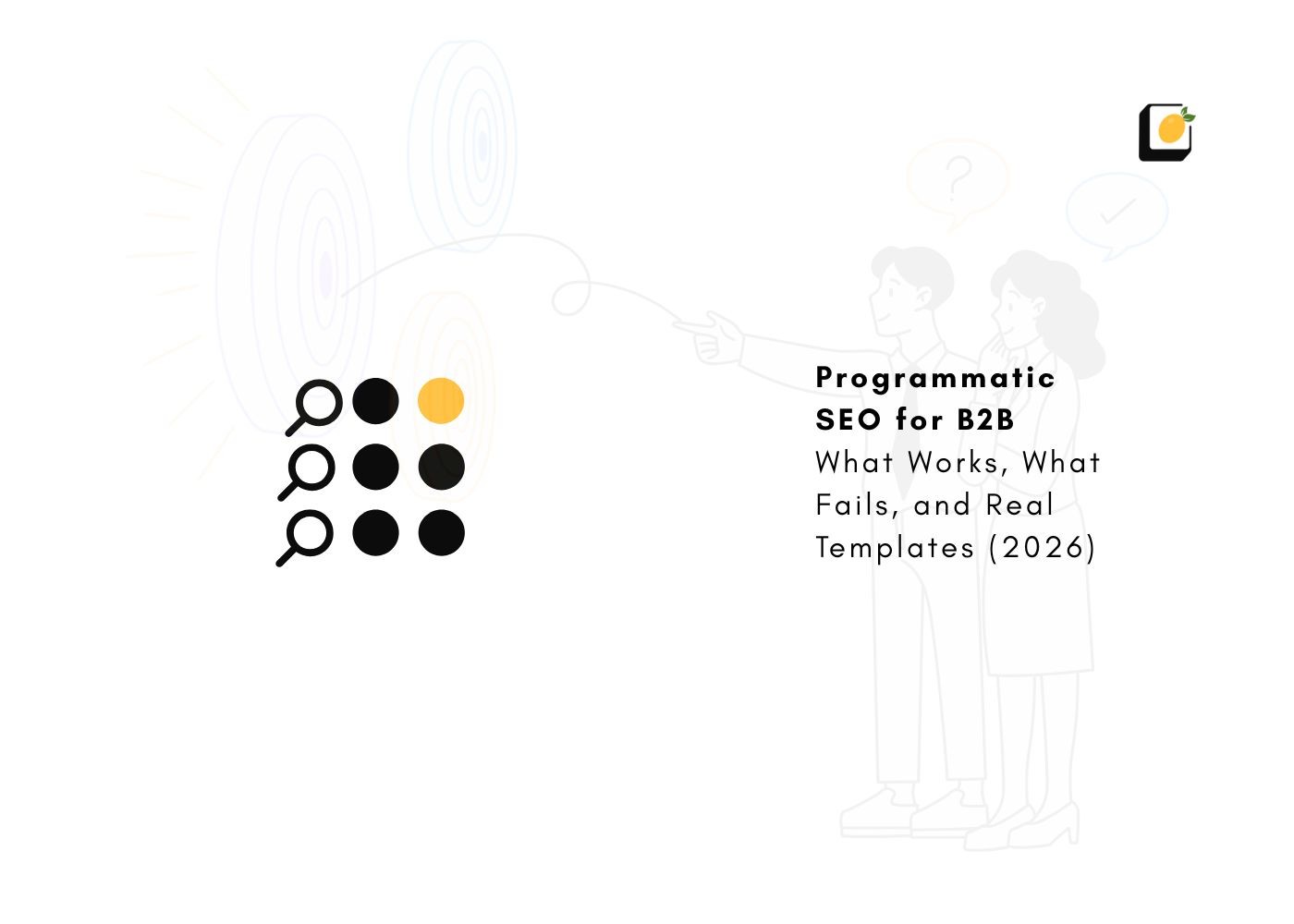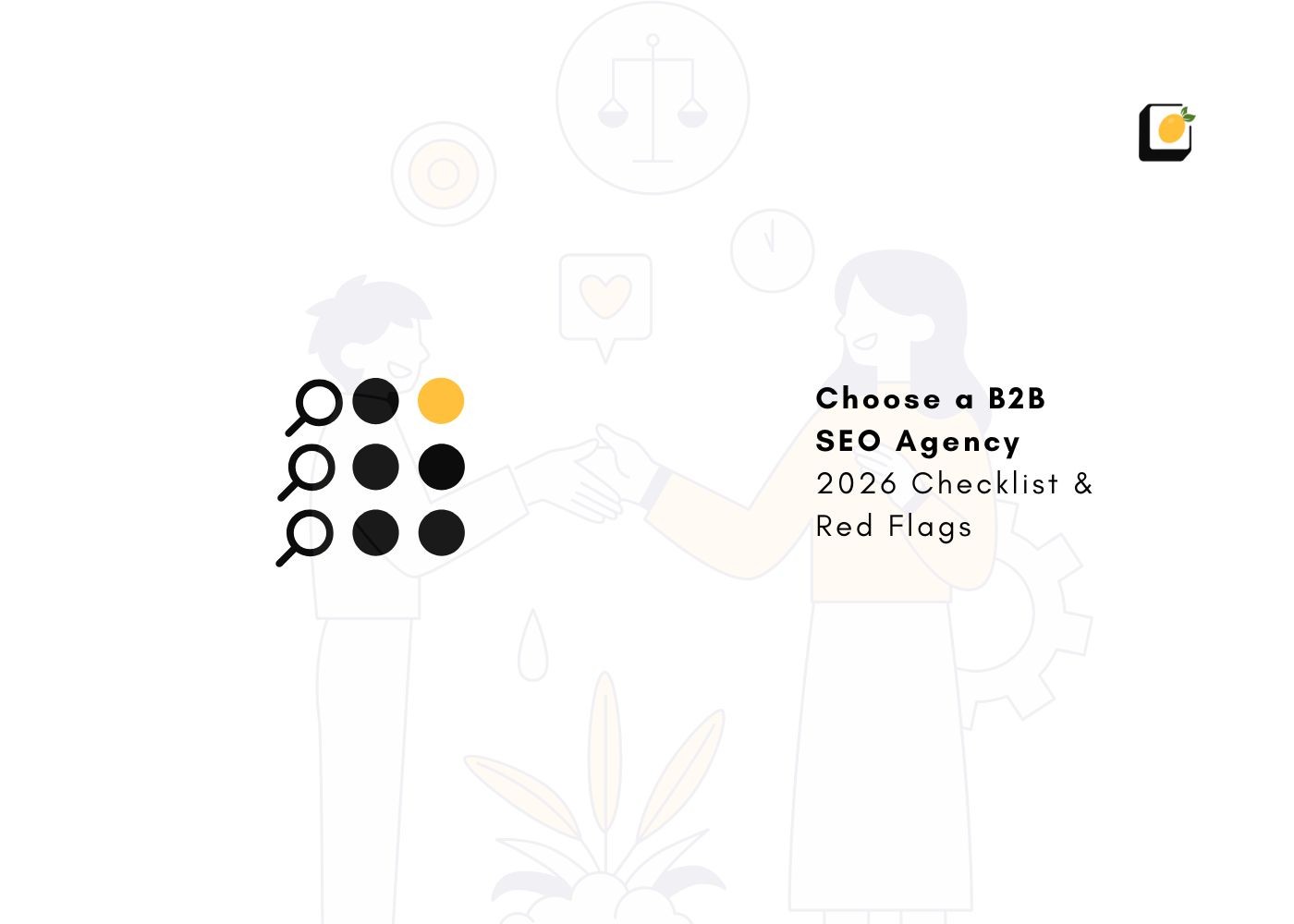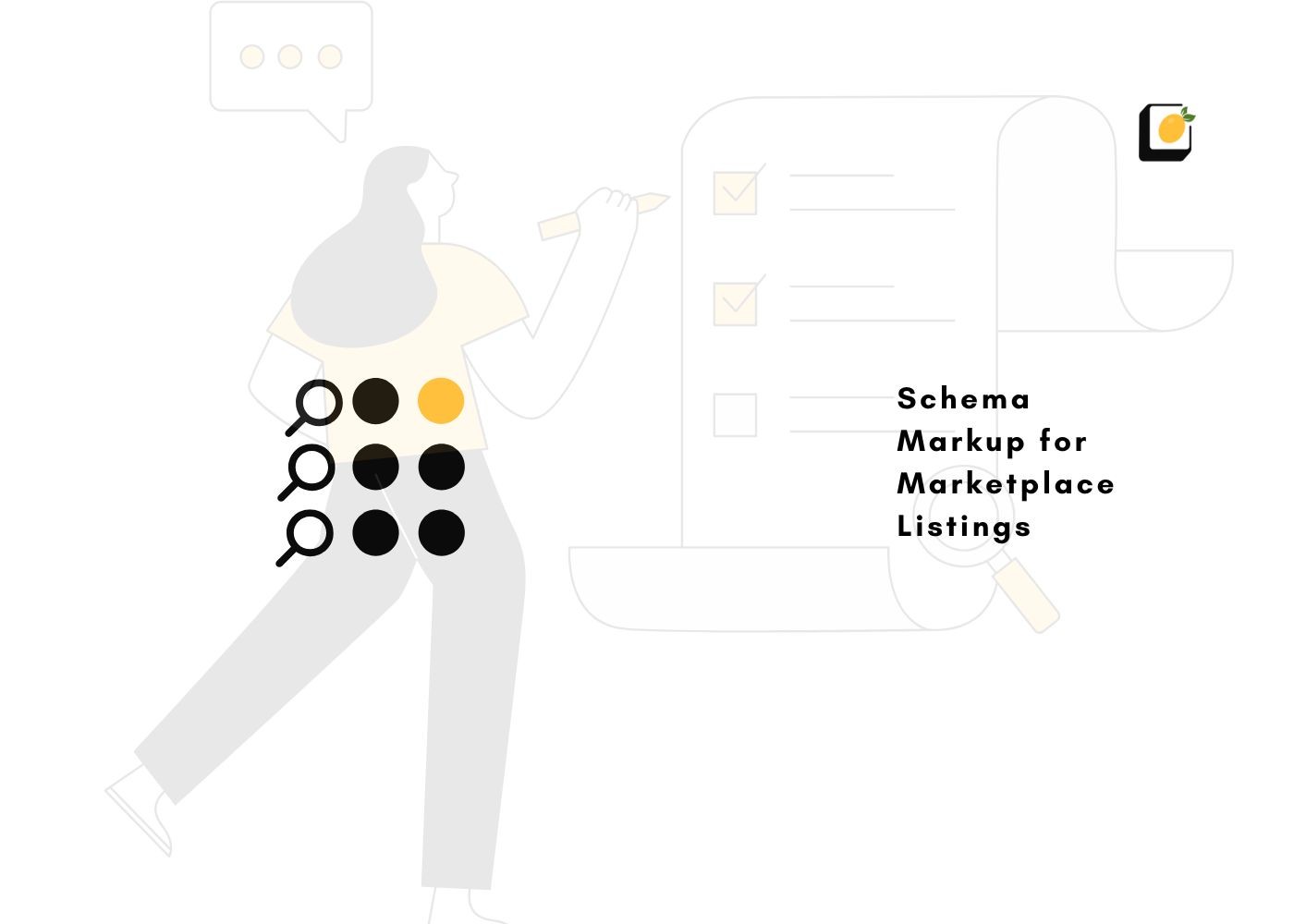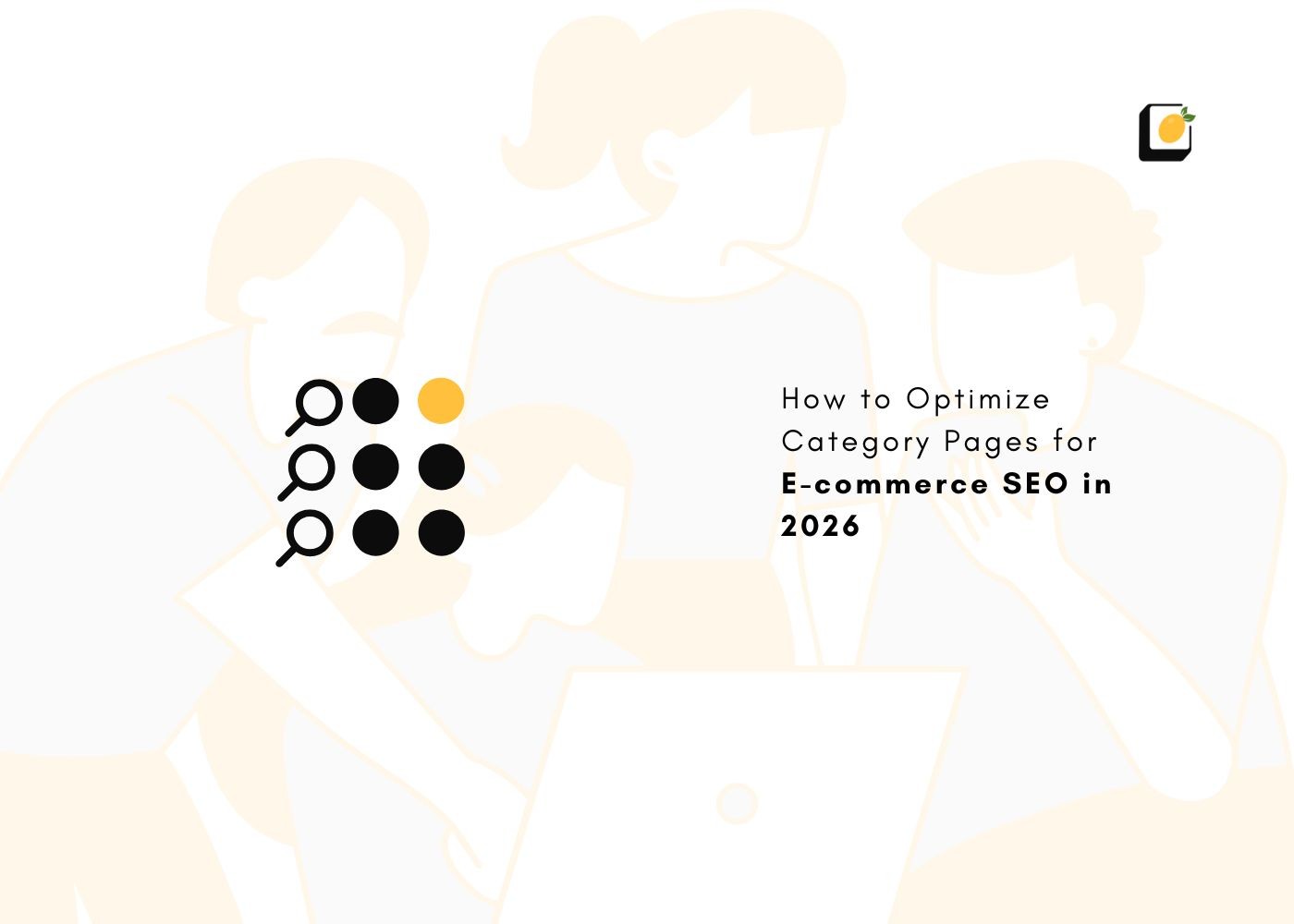B2B SaaS Content Strategy for AI Search Engines: Building Authority in the Age of GEO
July 14, 2025
Join 500+ brands growing with Passionfruit!
The search landscape has fundamentally shifted. B2B SaaS companies that built their growth on traditional Google SEO now face a new reality: AI search engines like ChatGPT, Perplexity, and Claude are becoming primary discovery channels for business software buyers. Yet most SaaS content strategies remain stuck in 2019, optimizing only for algorithms that matter less each month.
Your prospects aren't just googling "project management software" anymore. They're asking ChatGPT "What's the best way to handle remote team workflows?" or prompting Perplexity to "Compare enterprise collaboration tools for teams over 100 people." These AI search conversations require a completely different approach to content strategy; one that prioritizes authority, context, and direct answers over keyword density and backlinks.
This shift isn't coming; it's here. B2B SaaS AI optimization and Generative Engine Optimization (GEO) have become essential for companies that want to maintain competitive advantage in software discovery. The businesses adapting now will own the narrative when AI search becomes the primary channel for B2B software research.
How Do AI Search Engines Change B2B SaaS Discovery?
Understanding AI search behavior is crucial for B2B SaaS companies looking to maintain visibility in this new landscape. Unlike traditional search engines that return lists of links, AI engines synthesize information from multiple sources to provide direct, contextual answers to user queries.
AI Search Prioritizes Authoritative Context Over Keywords
Traditional SEO taught us to optimize for specific keywords and ranking positions. AI search algorithms focus on understanding context and providing comprehensive answers. When someone asks ChatGPT about "enterprise project management solutions," the AI doesn't just match keywords, it synthesizes information from the most credible sources to provide a nuanced response about features, pricing, use cases, and comparisons.
This means your content must establish clear authority on specific topics rather than trying to rank for broad keywords. Instead of creating 20 thin articles targeting variations of "project management software," successful B2B SaaS companies now create comprehensive resources that definitively answer complex questions about project management challenges, implementation strategies, and solution comparisons. AI engines reward depth and specificity.
Conversational Queries Require Different Content Architecture
B2B software buyers increasingly use conversational language when interacting with AI search engines. They don't search for "CRM software features," they ask "What CRM capabilities do I need to scale from 50 to 500 customers?" or "How do I migrate from HubSpot to Salesforce without losing data?"
Your content architecture must align with these natural language patterns. This requires moving beyond traditional keyword-focused content to conversation-driven content strategy. Each piece should anticipate and answer the specific questions your prospects ask AI engines throughout their buying journey.
Understanding what keywords should be used becomes less about volume and more about capturing the intent behind conversational queries. Successful GEO for SaaS means understanding the decision frameworks your prospects use and creating content that addresses the complete context of business decisions, not just product features.
Multi-Source Synthesis Demands Consistent Messaging
AI search engines pull information from multiple sources to create comprehensive answers. When ChatGPT or Perplexity discusses your SaaS solution, they might reference your website, third-party reviews, industry reports, and competitor comparisons all within a single response.
This multi-source approach makes message consistency crucial across all content touchpoints. Your website copy, blog content, guest articles, and even customer testimonials must align on key positioning points. Inconsistent messaging confuses AI algorithms and weakens your authority in generated responses.
Content syndication becomes strategically critical in the AI era. Publishing authoritative content across multiple high-authority platforms: industry publications, partner sites, and content networks increases the likelihood that AI engines will recognize and cite your expertise when generating relevant responses.
What Content Types Build Authority in AI Search Results?
Authority in AI search results comes from content that demonstrates deep expertise and provides actionable value. AI engines prioritize sources that consistently publish comprehensive, well-researched content addressing complex business challenges.
Comprehensive Framework and Methodology Content
AI search engines favor content that provides complete frameworks for solving business problems. Instead of optimizing individual articles for specific keywords, successful B2B SaaS content strategies focus on creating definitive resources that establish thought leadership in specific domains.
Framework-based content performs exceptionally well in AI search because it provides the structured thinking AI engines can easily parse and reference. For example, a complete "Customer Onboarding Framework for B2B SaaS" that includes assessment tools, implementation checklists, and success metrics becomes a go-to resource that AI engines cite across multiple related queries.
These comprehensive resources should include:
Detailed step-by-step processes with clear decision points and implementation timelines
Real-world examples and case studies demonstrating practical application across different company sizes
Template resources and tools that readers can immediately download and implement
Success metrics and benchmarks for measuring outcomes and identifying optimization opportunities
Common pitfalls and troubleshooting guides based on actual implementation experience
Understanding how to create SEO-friendly URLs becomes important when structuring these comprehensive resources, as AI engines analyze URL structure for content organization and hierarchy.
Industry-Specific Problem-Solution Content
B2B buyers increasingly seek solutions tailored to their specific industry context. Generic "how to choose software" content gets buried in AI responses, while industry-specific guidance establishes clear expertise and authority.
Vertical-focused content strategy allows SaaS companies to dominate AI search results for their target markets. Instead of competing in saturated general categories, companies can build authority in specific niches where they understand unique challenges and requirements.
Industry Vertical | Content Focus Areas | Key Decision Factors | Compliance Requirements |
Healthcare SaaS | HIPAA compliance, patient data security, clinical workflows | Data encryption, audit trails, integration with EHR systems | HIPAA, HITECH, FDA regulations |
Financial Services | SOX compliance, risk management, regulatory reporting | Multi-factor authentication, real-time monitoring, data governance | SOX, PCI DSS, GDPR, Basel III |
Manufacturing | Supply chain optimization, quality control, IoT integration | Production scheduling, inventory management, equipment monitoring | ISO 9001, FDA CFR Part 11, OSHA |
Education | Student privacy, accessibility, learning analytics | FERPA compliance, accessibility standards, scalable architecture | FERPA, ADA, COPPA |
Industry-specific authority requires deep research and genuine expertise. Surface-level content that simply mentions industry terms won't establish credibility with AI engines. You need to demonstrate understanding of industry regulations, common workflows, specific pain points, and nuanced requirements that generic solutions fail to address.
Comparison and Decision-Support Content
AI search engines frequently reference comparison content when users evaluate multiple solutions. However, AI algorithms favor balanced, analytical comparisons over promotional content that obviously favors one solution.
Effective comparison content for GEO takes an educational approach, helping readers understand the decision criteria and trade-offs rather than pushing a specific conclusion. This approach builds trust with AI engines and makes your content more likely to be cited in relevant responses.
Learning from top AI SEO tools analysis, decision-support content should include objective criteria frameworks, feature comparison matrices, and clear explanations of when different solutions make sense. This analytical approach positions your company as a trusted advisor rather than just another vendor, increasing the likelihood that AI engines will reference your expertise.
How Should B2B SaaS Companies Structure Content for GEO?
Content structure for Generative Engine Optimization requires a fundamental shift from traditional SEO approaches. Instead of optimizing individual pages for specific keywords, successful GEO strategies focus on creating interconnected content ecosystems that establish comprehensive topical authority.
Topic Cluster Architecture for AI Understanding
AI search engines understand content relationships and reward comprehensive coverage of specific topics. Building topic clusters around core business themes allows SaaS companies to demonstrate expertise across all aspects of a particular domain.
Each topic cluster should include a comprehensive pillar page that provides an authoritative overview of the entire topic, supported by detailed sub-pages that deep-dive into specific aspects. For B2B SaaS companies, this might mean creating clusters around "Customer Success Management," "Sales Process Optimization," or "Data Security Compliance."
The approach mirrors the 4 pillars of SEO but adapted for AI understanding. The pillar page serves as the definitive resource that AI engines reference for broad queries, while supporting content provides specific answers to detailed questions. This structure helps AI algorithms understand the full scope of your expertise and increases the likelihood of citations across multiple related searches.
Interconnected Internal Linking Strategy
Strategic internal linking helps AI engines understand content relationships and establishes topical authority. Unlike traditional SEO linking focused on passing "link juice," GEO linking strategies prioritize logical content connections that enhance user understanding.
Your internal linking should mirror the decision journey of B2B software buyers. Connect problem-identification content to solution-exploration content, link educational resources to implementation guides, and ensure comparison content points to relevant case studies and success stories.
Understanding organic traffic vs organic conversions helps prioritize which internal links drive the most value. This interconnected approach helps AI engines understand the complete context of your expertise and makes them more likely to reference multiple pieces of your content when generating comprehensive responses to complex queries.
Answer-First Content Organization
AI search engines prioritize content that provides clear, immediate answers to specific questions. Traditional blog structures that build up to a conclusion don't align with how AI algorithms parse and reference information.
Answer-first content organization puts the most important information at the beginning of each section, followed by supporting details and examples. This structure makes it easier for AI engines to extract relevant information and cite your content in generated responses.
Following how to optimize title tags for maximum click-through rates principles, each content section should function as a standalone answer that provides value even when referenced out of context. AI engines often pull specific paragraphs or sections from longer content, so every part of your content should be self-contained and valuable.
Where Do Most B2B SaaS GEO Strategies Fail?
Most B2B SaaS companies approach Generative Engine Optimization with traditional SEO mindsets, focusing on tactics that worked for Google rankings but fail to establish authority with AI search engines. Understanding these common failure points helps avoid strategies that waste resources and miss opportunities.
Focusing on Quantity Over Authority
The biggest mistake in B2B SaaS content strategy is prioritizing content volume over expertise demonstration. Companies continue churning out thin blog posts targeting keyword variations instead of creating comprehensive resources that establish clear thought leadership.
AI search engines reward depth and authority over content volume. Publishing 50 superficial articles about different software categories generates less authority than creating 10 comprehensive guides that definitively address complex business challenges in your domain.
Learning from how important is SEO analysis for modern businesses, content calendars focused on keyword targets rather than customer questions lead to irrelevant content that AI engines ignore. Successful GEO for SaaS requires understanding the specific questions your prospects ask throughout their buying journey and creating authoritative answers to those questions.
Neglecting Multi-Platform Content Distribution
Most SaaS companies limit content distribution to their own website and blog, missing opportunities to build authority across the multiple sources AI engines reference. AI search algorithms gain confidence in information when they see consistent expertise demonstrated across multiple credible platforms.
Strategic content syndication and guest publishing increase the likelihood that AI engines will recognize and cite your expertise. This doesn't mean duplicating content across platforms, but rather adapting core insights for different audiences and contexts while maintaining consistent messaging.
Cross-platform authority building requires genuine relationship building with industry publications, partner companies, and community platforms where your prospects seek information. Surface-level guest posting focused on backlinks won't establish the credibility AI engines recognize.
Ignoring Customer Success Content
Many B2B SaaS content strategies focus heavily on product features while neglecting the implementation and success content that AI engines frequently reference when answering "how to" queries related to business challenges.
Customer success content: case studies, implementation guides, troubleshooting resources, and optimization strategies builds credibility because it demonstrates real-world application of your solutions. AI engines cite this practical content when users ask about implementation challenges, success factors, and potential pitfalls.
Following seo principles for modern content creation, this content also addresses the growing importance of customer outcome questions in B2B software research. Prospects increasingly ask AI engines about realistic timelines, implementation challenges, and success metrics rather than just feature comparisons.
Underestimating Answer Accuracy Requirements
AI search engines maintain quality standards that exceed traditional web content, and inaccurate or outdated information significantly damages authority rankings. Many SaaS companies publish content without thorough fact-checking or regular updates, leading to reduced credibility over time.
Information accuracy becomes exponentially more important in AI search because these engines synthesize and amplify content across multiple user interactions. Inaccurate information doesn't just hurt one page's ranking—it can damage your overall authority across all related topics.
Understanding what is E-A-T in SEO principles becomes crucial for maintaining AI search credibility. Regular content auditing and updating ensures that AI engines continue recognizing your content as authoritative. This includes updating statistics, revising outdated recommendations, and refreshing examples to reflect current best practices and market conditions.
Key Takeaways
Create comprehensive framework content that establishes definitive expertise rather than chasing multiple thin keyword articles
Prioritize conversational query optimization over traditional keyword density for better AI search visibility
Build topic cluster architecture with interconnected content that demonstrates complete domain knowledge
Focus on industry-specific solutions to dominate niche markets where generic content fails
Maintain consistent messaging across all platforms to build multi-source authority recognition
Implement answer-first content structure with immediate value in every section for better AI parsing
Frequently Asked Questions
1. How does B2B SaaS AI optimization differ from traditional SEO?
B2B SaaS AI optimization focuses on providing comprehensive, authoritative answers to conversational queries rather than optimizing for specific keywords. AI search engines prioritize content depth, expertise demonstration, and contextual relevance over traditional ranking factors like backlinks and keyword density. The approach requires creating interconnected content ecosystems that establish topical authority across entire business domains.
2. What makes GEO for SaaS effective compared to standard content marketing?
GEO for SaaS succeeds by creating content that AI engines can easily parse, understand, and reference in generated responses. This means structuring content with clear frameworks, providing immediate answers, and maintaining consistency across multiple platforms. Unlike standard content marketing focused on brand awareness, GEO prioritizes becoming the authoritative source that AI engines cite when prospects ask specific business questions.
3. How can B2B SaaS companies measure AI search visibility and performance?
Measuring AI search performance requires tracking mentions and citations across AI platforms like ChatGPT, Perplexity, and Claude rather than traditional search rankings. Companies should monitor brand mentions in AI responses, track the accuracy of information cited, and measure how often their content appears in AI-generated answers. Tools like brand monitoring software and AI search tracking platforms help quantify this visibility.
4. What content types work best for establishing authority in AI search results?
Comprehensive framework content, industry-specific problem-solution guides, and analytical comparison resources perform best in AI search results. AI engines favor content that provides complete answers to complex questions, demonstrates practical expertise, and offers balanced perspectives on business decisions. Case studies, implementation guides, and troubleshooting resources also build strong authority because they show real-world application.
5. How important is technical SEO for B2B SaaS companies focusing on AI search?
Technical SEO remains crucial for AI search success because AI engines need to crawl, understand, and reference your content effectively. Proper site structure, fast loading speeds, mobile optimization, and structured data help AI algorithms parse and cite your content accurately. However, the focus shifts from traditional ranking optimization to ensuring AI engines can easily access and understand your authoritative content.
6. What role does customer success content play in B2B SaaS AI search strategy?
Customer success content builds credibility with AI engines because it demonstrates practical application and real-world outcomes rather than just product features. Implementation guides, troubleshooting resources, case studies, and optimization strategies help establish expertise that AI engines reference when users ask about realistic expectations, potential challenges, and success factors. This content type directly addresses the practical questions prospects ask AI engines during their evaluation process.


